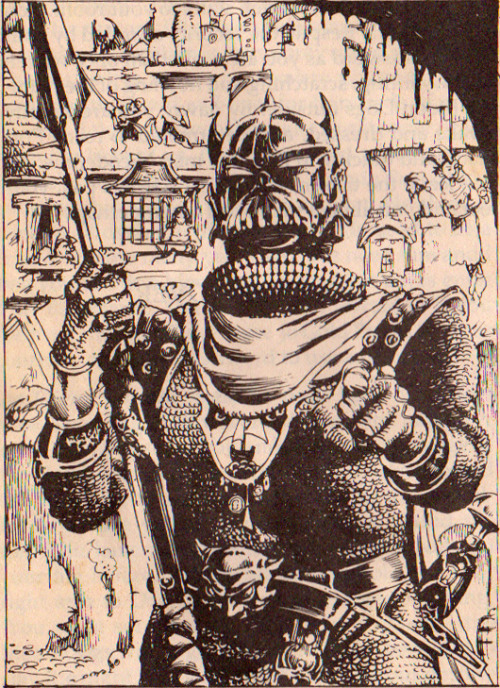Interesting.
In my games sometimes PC's get information from skill checks but there needs to be some sort of actual interaction to get those skill checks rolling. If a PC says to me "I need to find out where the black market is and I'm trying to be discreet." I'm gonna ask that player if he wants to RP it or roll it. Depending on the situation in the city at hand it's entirely possible that he's going to get more information out of RPing that interaction than he/she would from just rolling the dice.
And by more information I mean that they get the base information that they would have from rolling the dice. BUT if they RP the encounter depending on how the conversation goes it's possible that instead of getting the information from shady no-name d00d's it's possible that they chatted up one person (lets say Kaltos the teamster) in particular and started the beginnings of a valuable contact which could come in to play later on.
Bringing it back to the guard at the gate encounter, those guards are often the first face of the city that the PC's encounter. Now granted if your PC's aren't going to be in the city long then maybe it wont matter. But if they are going to be in the city their first encounter with those guards at the gate has the option to impart a lot of information to the PC's.
Do the guards make any of the PC's as spell casters? If so how are they addressed? Are they viewed as trouble makers? A particularly friendly/ flirtatious guard may be a valuable contact or source of information later on. An antagonistic guard might be an antagonist later on informing the constable that the PC's look like troublemakers and gave him lip at the entrance. What if the town or city is in need of a healer or healers or extra sword arms? and why? Would the PC's be approached by the guards upon entering the city and how?
Wyatt's approach (IMHO) works if you're on really limited time like a convention game or RPGA type game, which honestly I see 4E really catering to with it's streamlined and balanced rules for ease of play. On the other hand one of the many arguments that so many 4E proponents have made when someone says something like "You can't RP in 4E." or "4E is a miniatures combat game that minimizes RP" is that the people who DO say that are dead wrong. That you can RP in 4E. And I dont doubt it. D&D is still a role playing game and should be treated as such WHEN ACTUALLY PLAYING.
Just because there are skill challenges doesn't preclude actual role-playing or eliminate it altogether. Skill Challenges as they are presented lean heavily more toward the GAME end of the RPG spectrum. But as noted in a few articles by
Robert J. Schwalb on his blog it doesn't have to be that way. and the way that he chooses to run them is pretty much how I would run them if I were running 4E.
That intro encounter with the guards can help immersion. It helps build the world. If you're eschewing these types of encounters because they're not fun for you or in lieu of skill challenges (as they are presented in the core book) or going directly from encounter to encounter and you're not playing a RPGA or Convention game, then (and I ask this not to be snarky or deride anyones play style here) but why are you playing D&D? There are a many other types of boardgames or miniature war games that cut right to the chase. Including the WOTC 4E Boardgames, two of which I own and have played and have had fun playing. If time is an issue where actual RP encounters should be ignored wouldnt those types of games be a better more efficient option?
Again don't mistake what I'm asking or saying as a slam. I'm asking an honest question.




